Mark Litterick
Hard Math -- Easy UVM: Pragmatic solutions for verifying hardware algorithms using UVM
Dec 06, 2024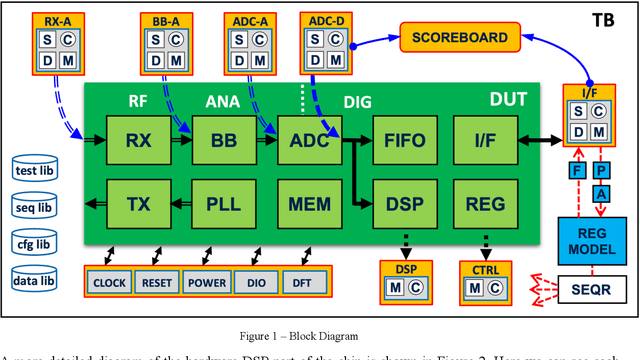

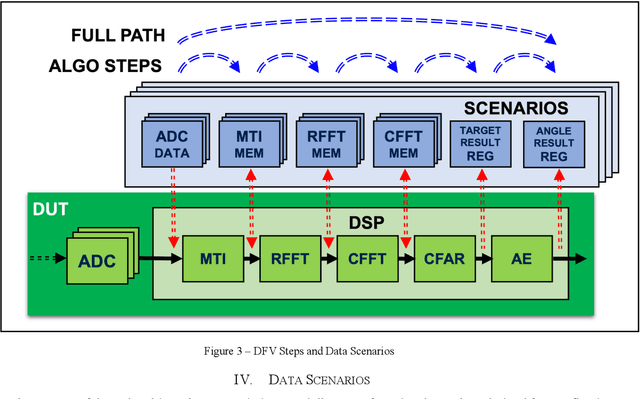
Abstract:This paper presents pragmatic solutions for verifying complex mathematical algorithms implemented in hardware in an efficient and effective manner. Maximizing leverage of a known-answer-test strategy, based on predefined data scenarios combined with design-for-verification modes, we demonstrate how to find and isolate concept and design bugs early in the flow. The solutions presented are based on real project experience with single chip radar sensors for a variety of applications. The verification environments supporting the presented strategies are based on SystemVerilog and the Universal Verification Methodology.
Efficient Verification of a RADAR SoC Using Formal and Simulation-Based Methods
Apr 20, 2024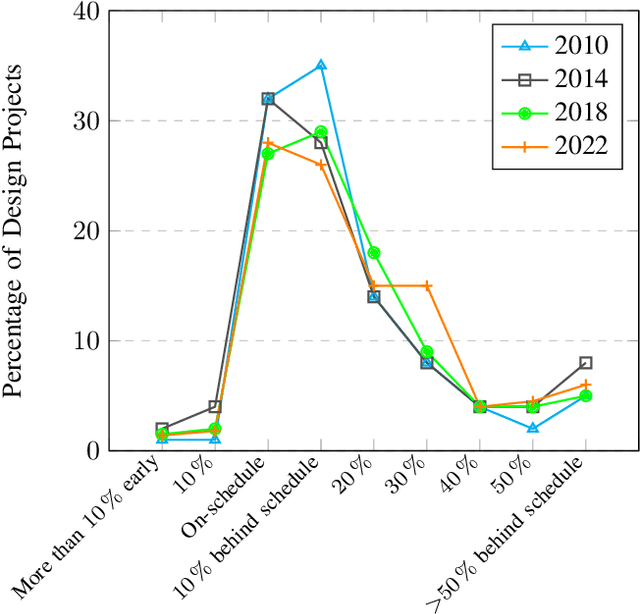
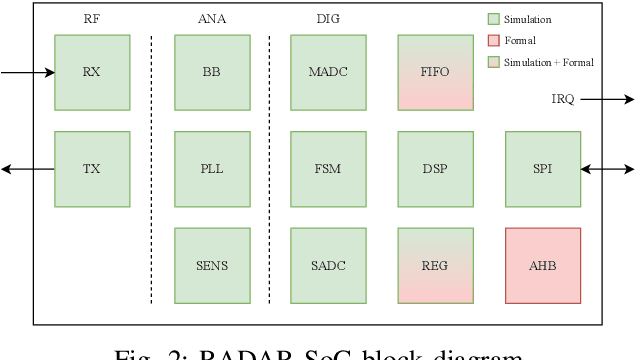
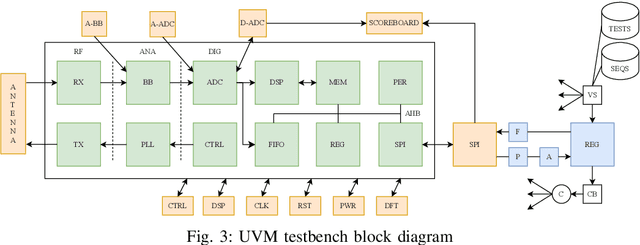
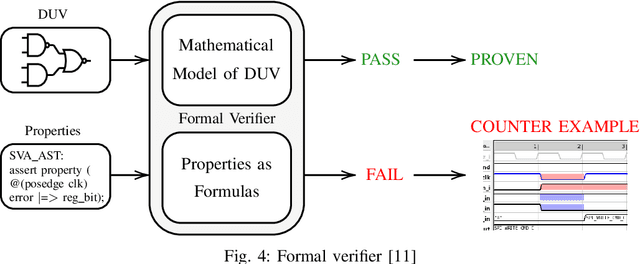
Abstract:As the demand for Internet of Things (IoT) and Human-to-Machine Interaction (HMI) increases, modern System-on-Chips (SoCs) offering such solutions are becoming increasingly complex. This intricate design poses significant challenges for verification, particularly when time-to-market is a crucial factor for consumer electronics products. This paper presents a case study based on our work to verify a complex Radio Detection And Ranging (RADAR) based SoC that performs on-chip sensing of human motion with millimetre accuracy. We leverage both formal and simulation-based methods to complement each other and achieve verification sign-off with high confidence. While employing a requirements-driven flow approach, we demonstrate the use of different verification methods to cater to multiple requirements and highlight our know-how from the project. Additionally, we used Machine Learning (ML) based methods, specifically the Xcelium ML tool from Cadence, to improve verification throughput.
 Add to Chrome
Add to Chrome Add to Firefox
Add to Firefox Add to Edge
Add to Edge